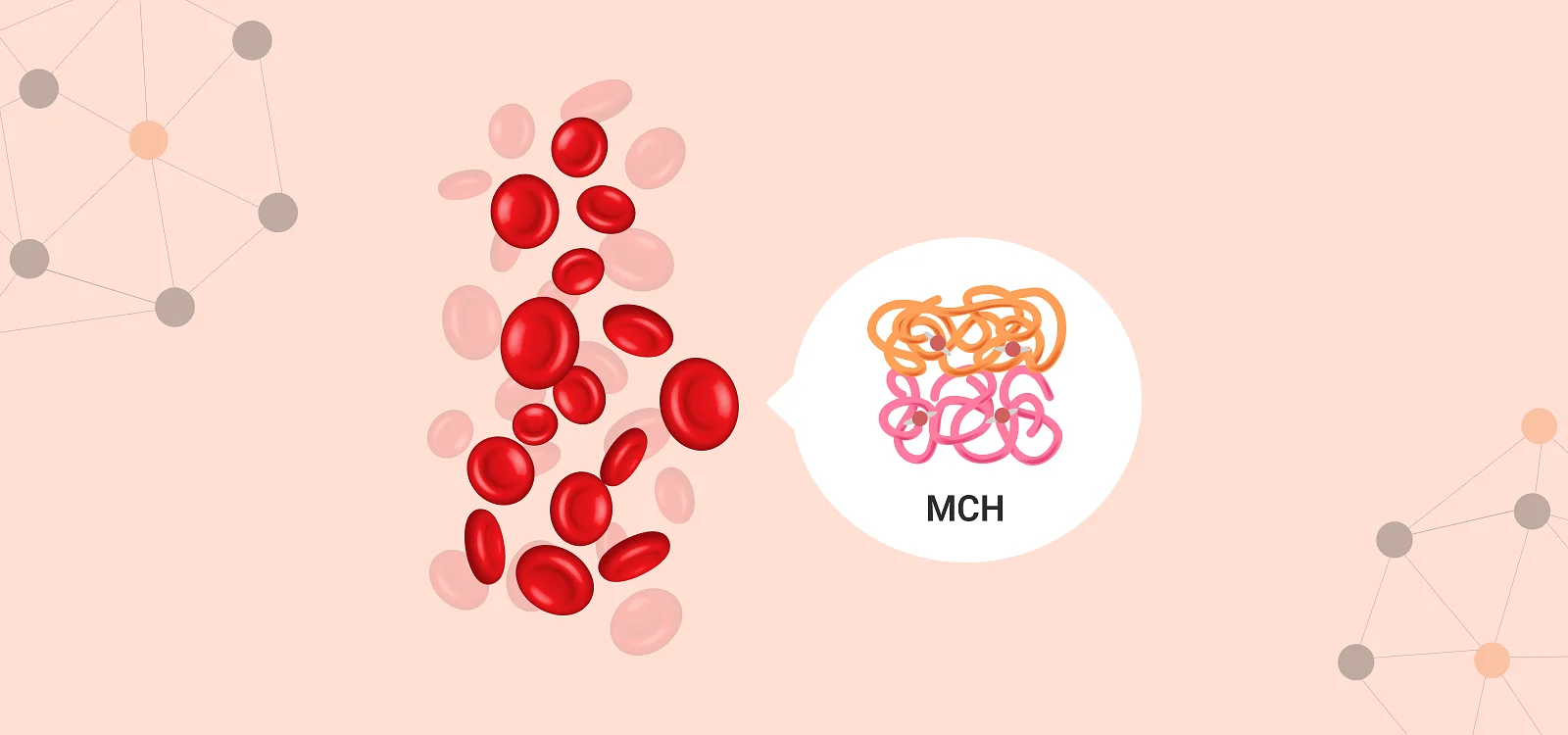What Is MCH?
Mean Corpuscular Hemoglobin (MCH) is a crucial measure in understanding the average amount of hemoglobin present in each red blood cell. It plays a vital role in diagnosing various blood disorders and conditions related to hemoglobin levels. MCH is often reported as part of a complete blood count (CBC) test and helps healthcare professionals assess a patient’s overall health and detect abnormalities in red blood cells.
What Does MCH Reveal?
MCH provides valuable insights into the amount of hemoglobin present in individual red blood cells. By calculating the average hemoglobin content per red blood cell, MCH aids in diagnosing different types of anemia and other blood disorders. Understanding MCH levels helps healthcare providers determine if a patient’s red blood cells contain enough hemoglobin to function optimally.
Causes of Low MCH
Low MCH levels are commonly associated with iron deficiency Anemia, a condition characterized by inadequate levels of iron in the body. Several factors can contribute to the development of iron deficiency anemia, including:
- Blood loss: Significant blood loss due to injury, surgery, or gastrointestinal conditions can lead to decreased iron levels, resulting in low MCH.
- Problems absorbing iron: Certain medical conditions, such as celiac disease or inflammatory bowel disease, can impair the body’s ability to absorb iron from food, leading to iron deficiency anemia.
- Kidney disease: Chronic kidney disease can disrupt the production of erythropoietin, a hormone essential for red blood cell production, contributing to low MCH levels.
- Chronic conditions that cause inflammation: Inflammatory diseases like rheumatoid arthritis or systemic lupus erythematosus can interfere with iron metabolism and lead to anemia.
- Not enough iron in your diet: Inadequate intake of iron-rich foods or poor dietary choices can result in iron deficiency anemia and subsequently low MCH levels.
Symptoms of Low MCH
- Fatigue and weakness
- Shortness of breath
- Pale skin
- Dizziness or lightheadedness
- Cold hands and feet
- Brittle nails
- Headaches
- Irregular heartbeat
Causes of High MCH
Elevated MCH levels can indicate various underlying health conditions or lifestyle factors, including:
- Vitamin B12 deficiency: Inadequate intake or absorption of vitamin B12 can lead to macrocytic anemia, characterized by enlarged red blood cells and high MCH levels.
- Liver disease: Certain liver conditions, such as cirrhosis or hepatitis, can affect the production and metabolism of red blood cells, resulting in elevated MCH.
- Alcoholism: Chronic alcohol consumption can impair the body’s ability to absorb essential nutrients, leading to nutritional deficiencies and high MCH levels.
Symptoms of High MCH
- Fatigue and weakness
- Jaundice (yellowing of the skin and eyes)
- Shortness of breath
- Rapid heartbeat
- Tingling or numbness in extremities
- Difficulty concentrating
- Digestive issues
Treatment for Abnormal MCH Levels
The treatment approach for abnormal MCH levels depends on the underlying cause and severity of the condition. For low MCH levels associated with iron deficiency anemia, treatment may include:
- Iron supplementation: Oral iron supplements or intravenous iron therapy may be prescribed to replenish iron stores and improve MCH levels.
- Dietary changes: Consuming iron-rich foods such as red meat, poultry, fish, leafy greens, and fortified cereals can help boost iron levels in the body.
- Treating underlying conditions: Addressing the root cause of iron deficiency, such as gastrointestinal bleeding or inflammatory disorders, is essential for managing low MCH levels effectively.
In cases of high MCH levels, treatment may involve:
- Addressing nutritional deficiencies: Vitamin B12 supplementation or dietary modifications can help normalize MCH levels in individuals with vitamin deficiencies.
- Managing underlying health conditions: Treating liver disease, alcohol dependence, or other contributing factors can help lower MCH levels and improve overall health.
Conclusion
Mean Corpuscular Hemoglobin (MCH) is a critical parameter in assessing red blood cell health and diagnosing various blood disorders. Understanding the causes, symptoms, and treatment options for abnormal MCH levels is essential for maintaining optimal health and well-being.
FAQs
- Can low MCH levels indicate conditions other than iron deficiency anemia?
- Yes, low MCH levels can also occur in cases of thalassemia, lead poisoning, and chronic diseases affecting red blood cell production or lifespan.
- Yes, low MCH levels can also occur in cases of thalassemia, lead poisoning, and chronic diseases affecting red blood cell production or lifespan.
- Is it possible to have high MCH levels without an underlying health condition?
- While high MCH levels are often indicative of certain health issues, lifestyle factors such as excessive alcohol consumption or poor dietary habits can also contribute to elevated MCH levels.
- While high MCH levels are often indicative of certain health issues, lifestyle factors such as excessive alcohol consumption or poor dietary habits can also contribute to elevated MCH levels.
- How often should MCH levels be monitored?
- The frequency of MCH level monitoring depends on individual health status and the presence of underlying conditions. Healthcare providers may recommend regular blood tests to assess MCH levels as part of routine health screenings or disease management.
- The frequency of MCH level monitoring depends on individual health status and the presence of underlying conditions. Healthcare providers may recommend regular blood tests to assess MCH levels as part of routine health screenings or disease management.
- Are there any natural remedies for correcting abnormal MCH levels?
- While maintaining a balanced diet rich in essential nutrients is crucial for overall health, severe cases of abnormal MCH levels may require medical intervention such as supplementation or specific treatments targeted at underlying causes.
- While maintaining a balanced diet rich in essential nutrients is crucial for overall health, severe cases of abnormal MCH levels may require medical intervention such as supplementation or specific treatments targeted at underlying causes.
- Can MCH levels fluctuate over time?
- Yes, MCH levels can vary depending on factors such as dietary changes, medication usage, or the progression of underlying health conditions. Regular monitoring and follow-up with healthcare providers are necessary to track changes in MCH levels accurately.





